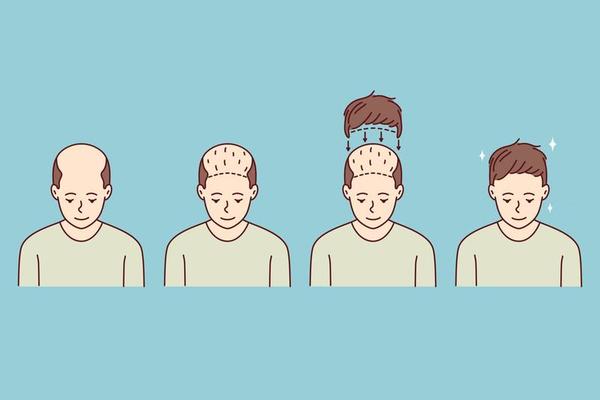Hair transplant surgery is a significant decision that requires careful consideration and consultation with a qualified medical professional, typically a dermatologic surgeon or a specialized hair restoration surgeon. While hair transplant surgery can be a highly effective solution for hair loss, not everyone is a suitable candidate.
Several factors are taken into account to determine whether someone is a suitable candidate for a hair transplant. Here are some key considerations:
- Extent of Hair Loss: Hair transplant surgery is most suitable for individuals with stable, patterned hair loss, such as male or female pattern baldness (androgenetic alopecia). It is essential to assess the extent and pattern of hair loss to determine whether there is adequate donor hair available for transplantation.
- Donor Hair Availability: The success of a hair transplant depends on the availability of sufficient donor hair, typically from the back or sides of the scalp. The density, texture, and quality of the donor hair play a crucial role in achieving natural-looking results.
- Health Status: Candidates for hair transplant surgery should be in good overall health and free from any medical conditions that could complicate surgery or affect healing. It’s essential to disclose any medical conditions, allergies, or medications to the surgeon during the consultation.
- Age: While hair transplant surgery can be performed at various ages, candidates should ideally be in their late twenties or older. This allows for a more accurate assessment of the pattern and progression of hair loss, ensuring more predictable long-term results.
- Hair Texture and Color: The candidate’s natural hair texture and color should be taken into consideration during the planning process to ensure that the transplanted hair blends seamlessly with the existing hair for a natural appearance.
- Expectations and Goals: Realistic expectations are crucial for a successful hair transplant outcome. Candidates should have a clear understanding of the potential results, limitations, and risks associated with the procedure. Open communication with the surgeon about desired outcomes and goals is essential.
- Stable Hair Loss: Candidates should have stable hair loss patterns, meaning that their hair loss has stabilized and is not likely to progress rapidly in the future. Hair transplant surgery may not be suitable for individuals experiencing active or rapidly progressive hair loss.
- Psychological Readiness: Hair loss can have a significant impact on self-esteem and confidence. Candidates should be psychologically prepared for the surgical process, including the initial shedding phase and the gradual growth of transplanted hair.
- Commitment to Post-Operative Care: Successful hair transplant outcomes require diligent post-operative care, including proper wound care, adherence to medication regimens, and following the surgeon’s instructions for optimal healing and growth.
- Financial Considerations: Hair transplant surgery can be a significant investment, and candidates should consider the cost of the procedure along with potential additional expenses for follow-up appointments and post-operative care.
Overall, the suitability of a candidate for hair transplant surgery depends on various factors, and individualized consultation with a qualified hair restoration surgeon is essential to determine the most appropriate treatment plan. By considering these factors and discussing goals and expectations openly with the surgeon, candidates can make informed decisions about pursuing hair transplant surgery as a solution for hair loss.





Comments